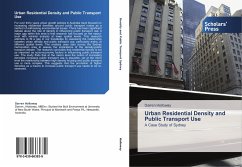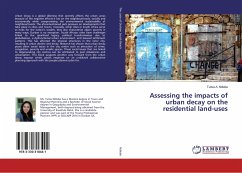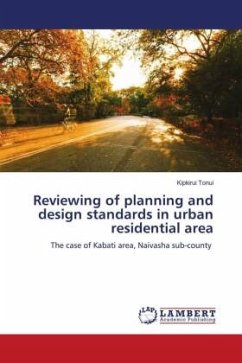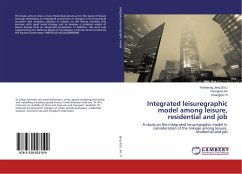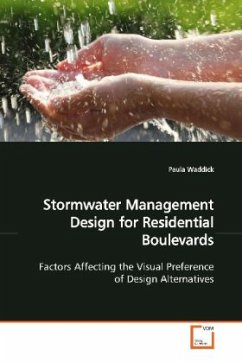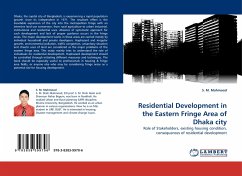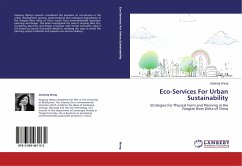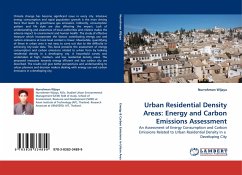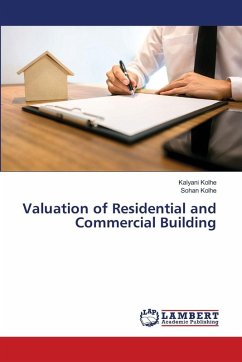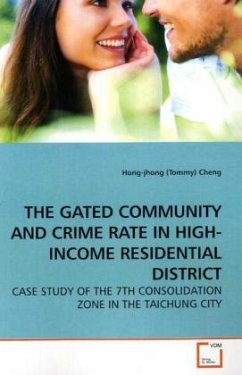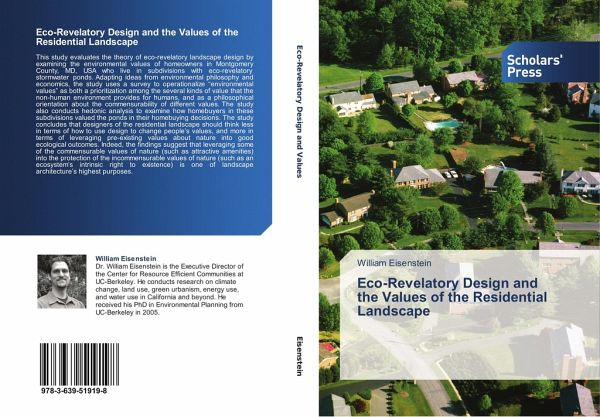
Eco-Revelatory Design and the Values of the Residential Landscape
Versandkostenfrei!
Versandfertig in 6-10 Tagen
43,99 €
inkl. MwSt.

PAYBACK Punkte
22 °P sammeln!
This study evaluates the theory of eco-revelatory landscape design by examining the environmental values of homeowners in Montgomery County, MD, USA who live in subdivisions with eco-revelatory stormwater ponds. Adapting ideas from environmental philosophy and economics, the study uses a survey to operationalize environmental values as both a prioritization among the several kinds of value that the non-human environment provides for humans, and as a philosophical orientation about the commensurability of different values. The study also conducts hedonic analysis to examine how homebuyers in th...
This study evaluates the theory of eco-revelatory landscape design by examining the environmental values of homeowners in Montgomery County, MD, USA who live in subdivisions with eco-revelatory stormwater ponds. Adapting ideas from environmental philosophy and economics, the study uses a survey to operationalize environmental values as both a prioritization among the several kinds of value that the non-human environment provides for humans, and as a philosophical orientation about the commensurability of different values. The study also conducts hedonic analysis to examine how homebuyers in these subdivisions valued the ponds in their homebuying decisions. The study concludes that designers of the residential landscape should think less in terms of how to use design to change people s values, and more in terms of leveraging pre-existing values about nature into good ecological outcomes. Indeed, the findings suggest that leveraging some of the commensurable values of nature (such as attractive amenities) into the protection of the incommensurable values of nature (such as an ecosystem s intrinsic right to existence) is one of landscape architecture s highest purposes.



